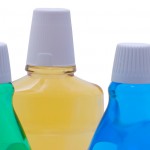
Effective plaque control is important to maintaining good oral health with dental plaque being a key aetiological factor in periodontal disease. Good oral hygiene using toothbrushes, toothpaste and other aids such as floss and interspace brushes are important for the removal of plaque. However, these mechanical methods are not always feasible or sufficient so antimicrobial mouthwashes can provide a useful adjunct. Propolis a natural resinous material produced by the honey bee shows antimicrobial and anti-inflammatory properties and clinical trials have investigated the efficacy of propolis on plaque and gingivitis reporting conflicting results.
The aim of this review was to evaluate the available evidence regarding the efficacy of propolis-based mouthwash on dental plaque and gingival inflammation.
Methods
Searches were conducted in the PubMed, Scopus, and Web of Science databases. Randomised controlled trials (RCTs) published in English and conducted in patients aged ≥18years comparing propolis-based mouthwashes and chlorhexidine mouthwash were considered. Two reviewers independently screened and selected studies before extracting data. The Cochrane risk of bias tool was used to assess study quality. The main outcomes were gingival inflammation and/or plaque index. The findings were presented as a narrative summary.
Results
- 9 RCTs involving a total of 333 patients were included.
- 6 studies were considered to be at high risk of bias, 1 at unclear risk and 2 at low risk.
- 4 studies were conducted in India, 2 in Brazil, 1 in Iran.
- Sample sizes ranged from 10 – 60 patients and follow-up periods from 5-28 days.
- 8 studies used raw propolis and one water extract propolis and ethanol extract propolis.
- 2% chlorhexidine was used in 7 studies and 0.12% in two studies.
- 0f 8 studies reporting on plaque index 5 had comparable results between propolis and chlorhexidine, 2 found chlorhexidine superior and 1 study found propolis-based mouthwashes.
- 4 studies reported propolis-based mouthwashes to be superior to chlorhexidine in reducing gingival inflammation with 2 studies reporting comparable effects.
- Only 1 study reported side effects.
Conclusions
The authors concluded: –
The results suggest that propolis-based mouthwashes have potential benefits in reducing plaque and gingival inflammation. However, methodological limitations along with small sample sizes in some of the included studies weaken the strength of the evidence. Therefore, further well-designed clinical trials with large sample sizes and adequate follow-up period are recommended to discern the efficacy of propolis mouthwash on plaque and gingivitis.
Comments
The reviewers have searched 3 databases although restricting the included studies to those published in English may have excluded some relevant studies. While 9 RCTs were included only 2 were considered to be at low risk of bias with 5 of the 9 studies being at high risk of bias in relation to outcome assessment. The included studies are also small and of short duration with only 3 studies having a follow up of 28 days or longer. As the authors note there was also marked variation in the outcome assessment methods with 3 different plaque indices, and 3 different gingival indices with one study not providing information on the plaque or gingival index used. So while the findings suggest some potential benefit from propolis-based mouthwashes on plaque and gingivitis the findings should be viewed with caution because of the very low quality evidence that it currently available. As the authors note there is a need for high-quality well-reported studies with appropriate ample sizes to clarify the efficacy of propolis mouthwash.
Link
Primary Paper
Halboub E, Al-Maweri SA, Al-Wesabi M, et al. Efficacy of propolis-based mouthwashes on dental plaque and gingival inflammation: a systematic review. BMC Oral Health. 2020;20(1):198. Published 2020 Jul 10. doi:10.1186/s12903-020-01185-5
Other references
Dental Elf – 3rd Apr 2017
Dental Elf – Mouthwash Blogs
